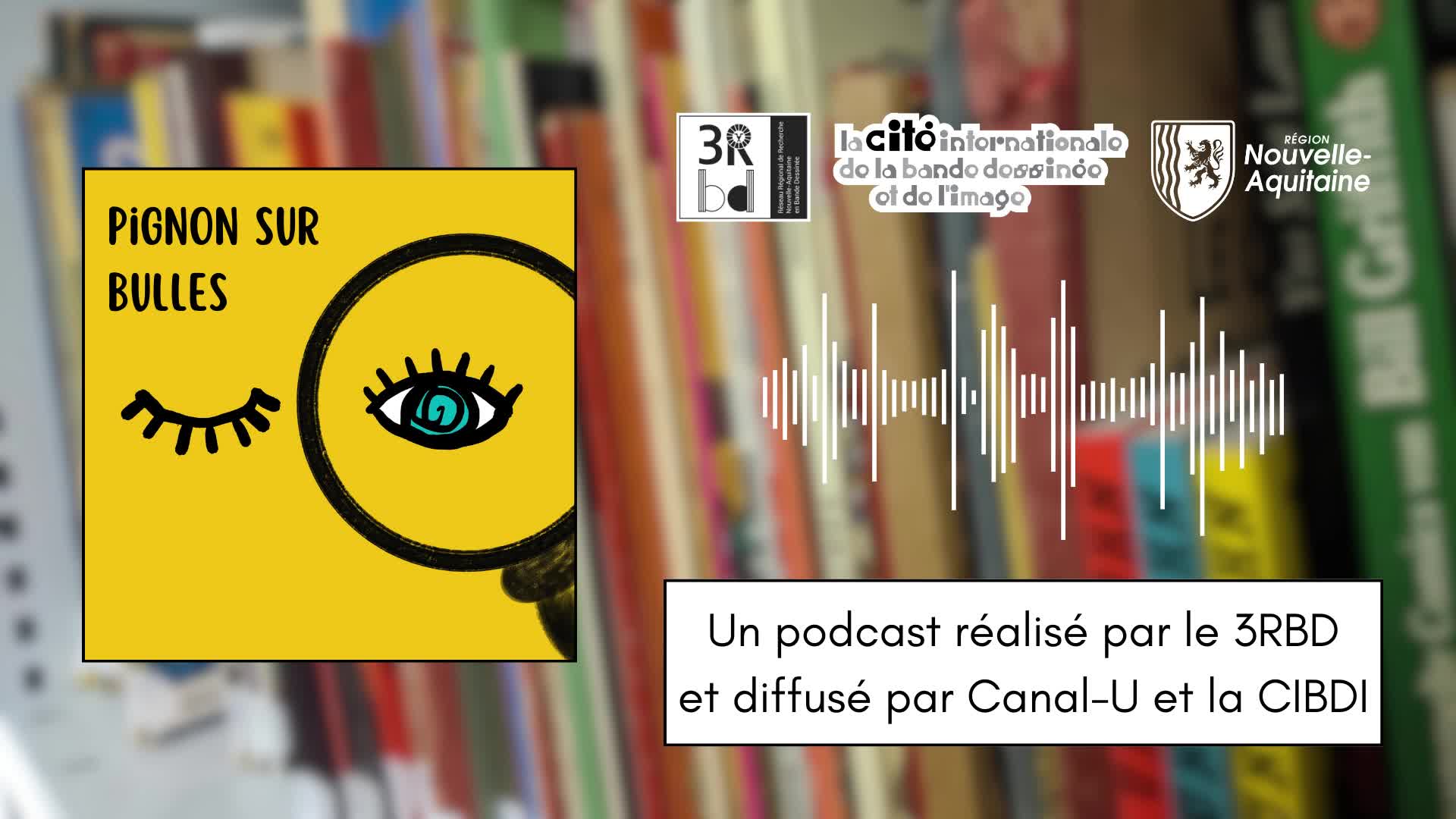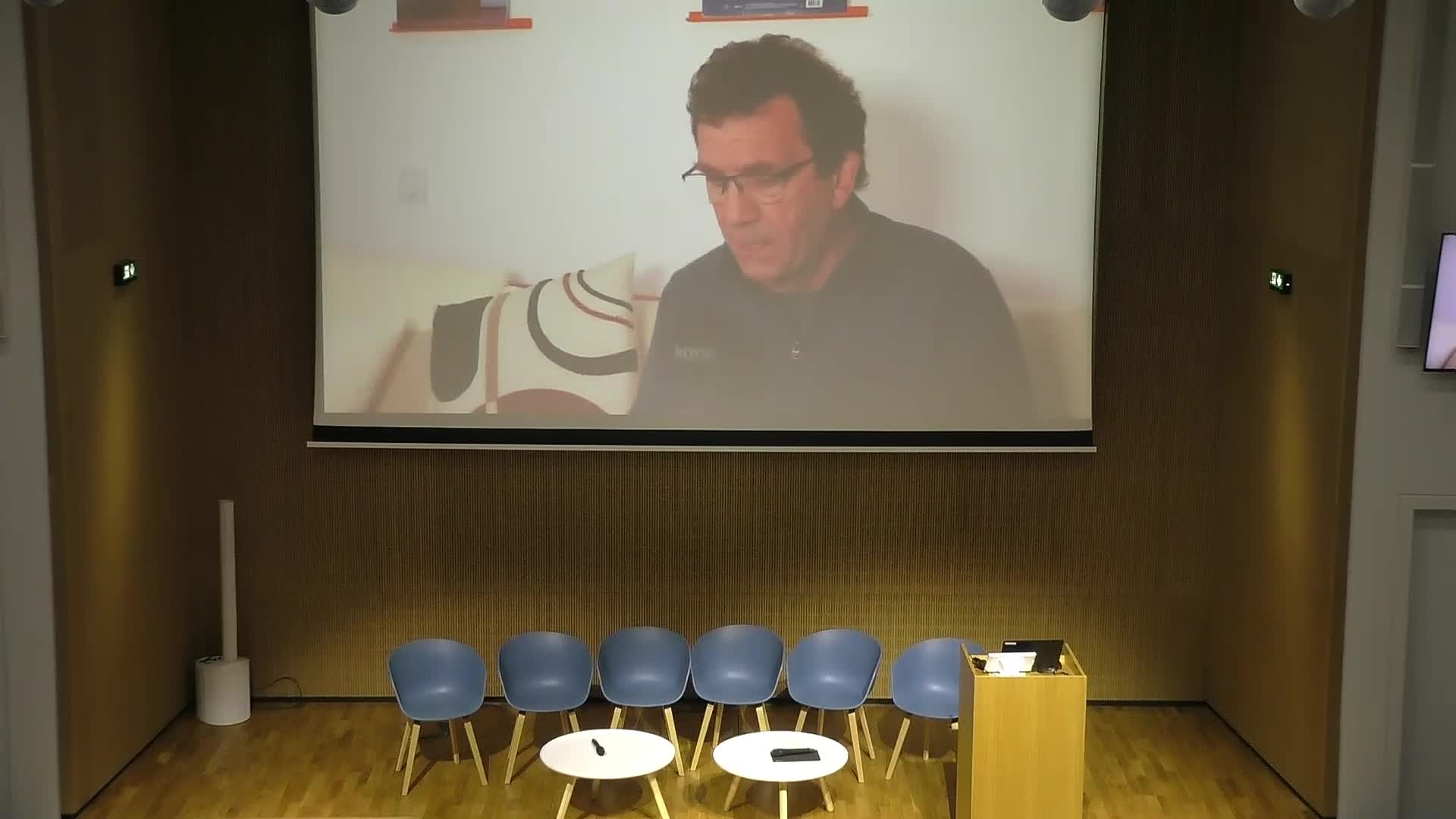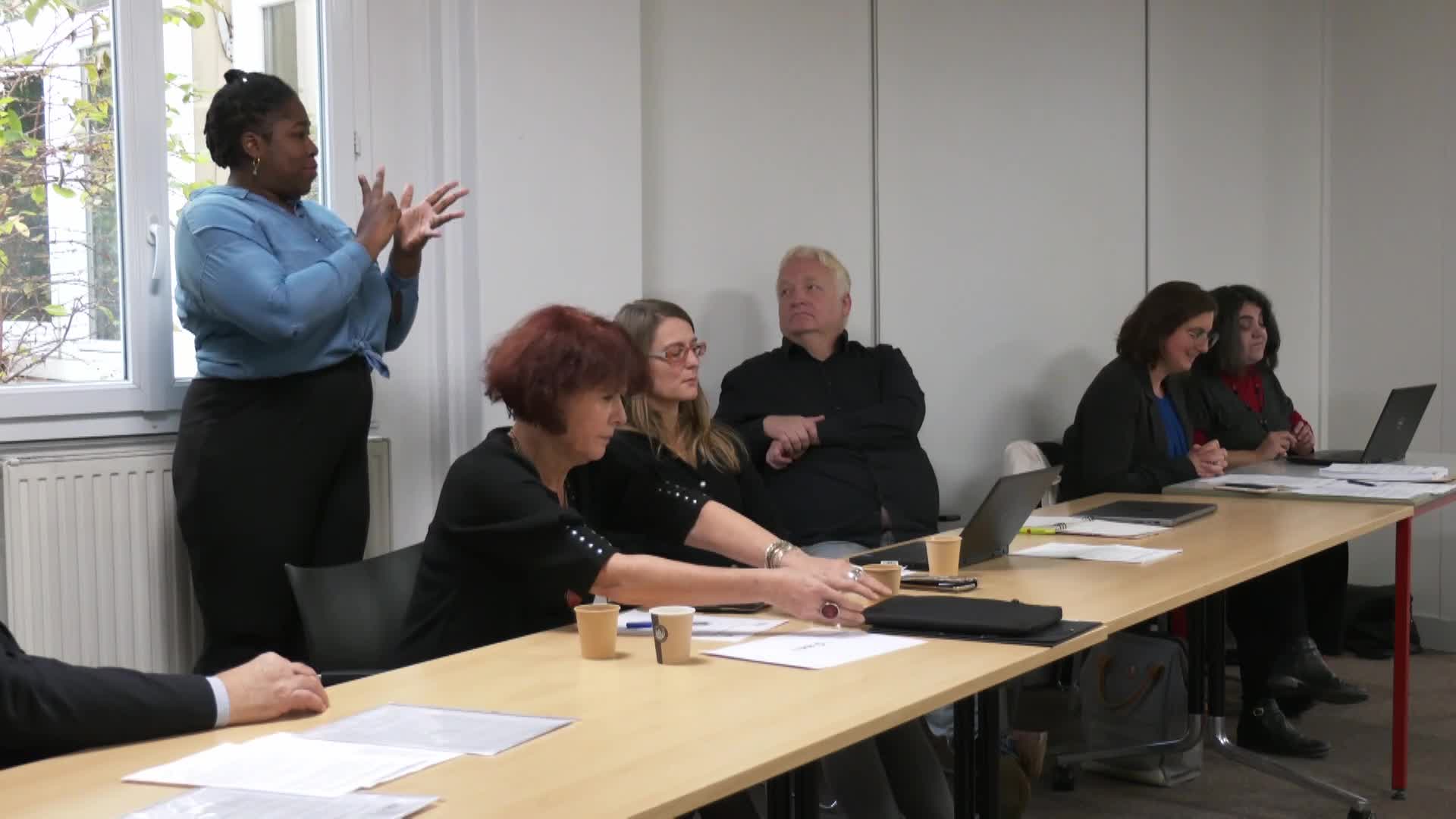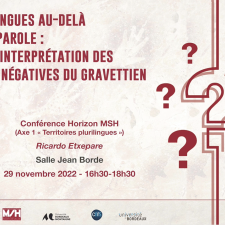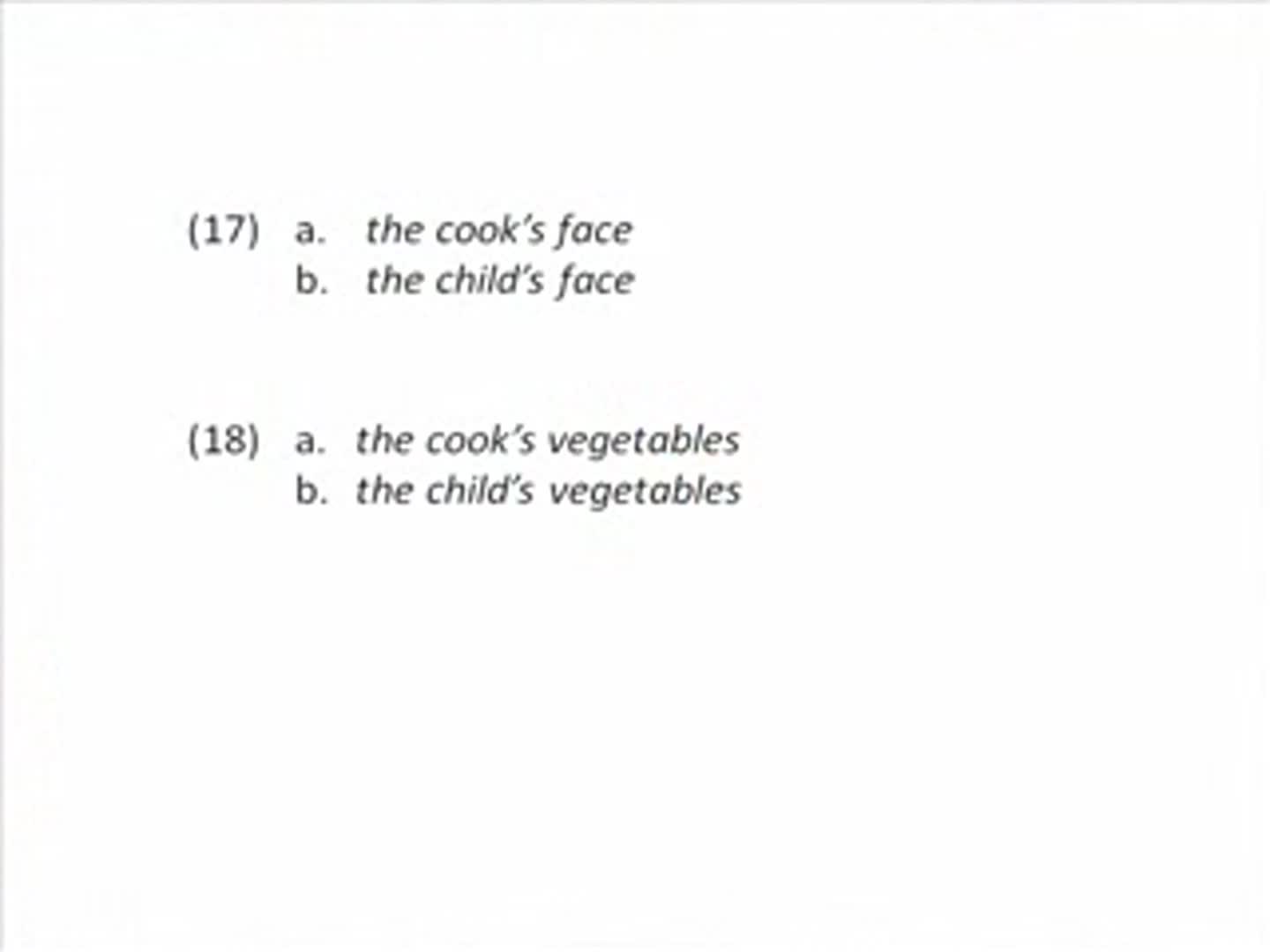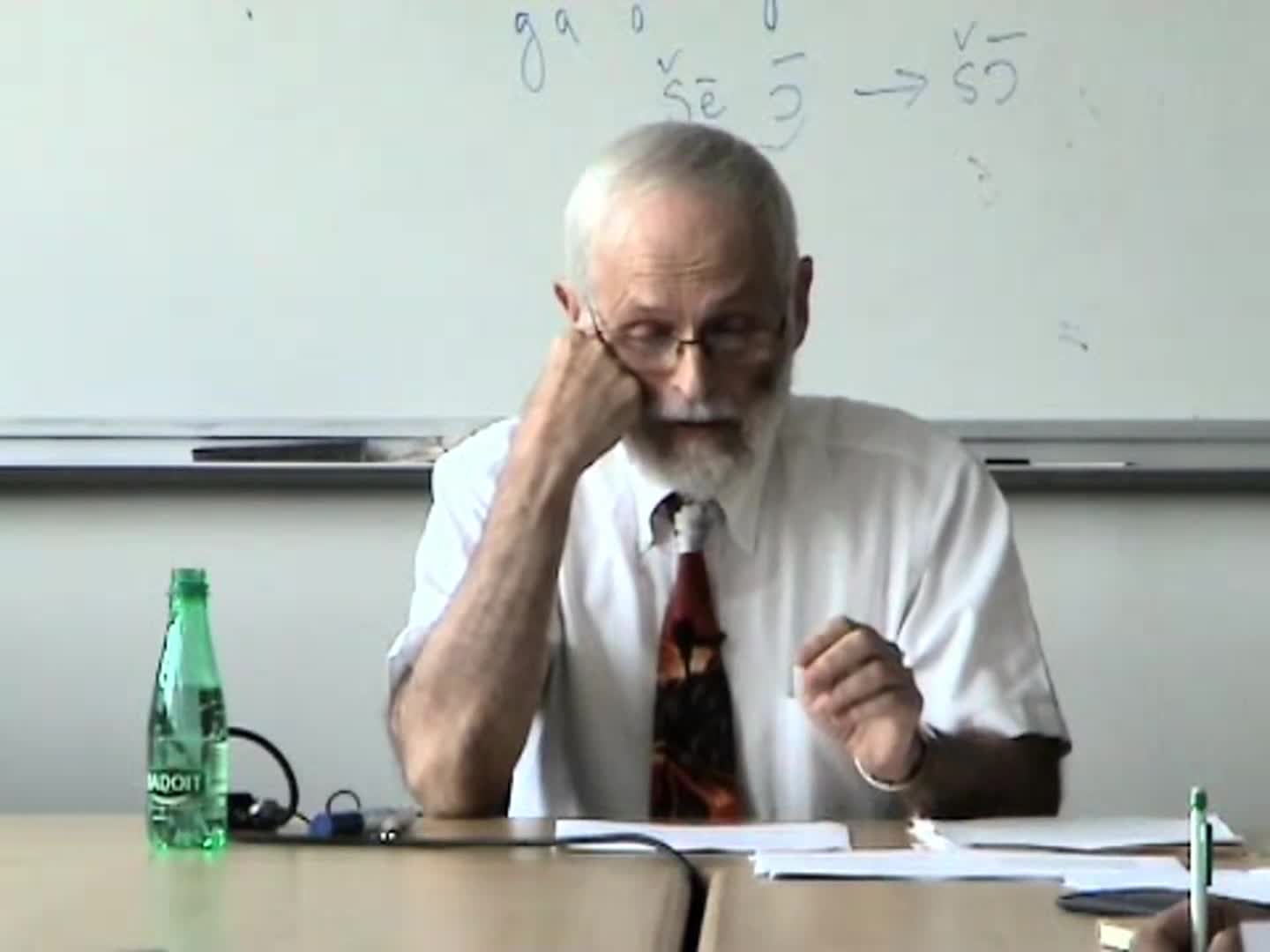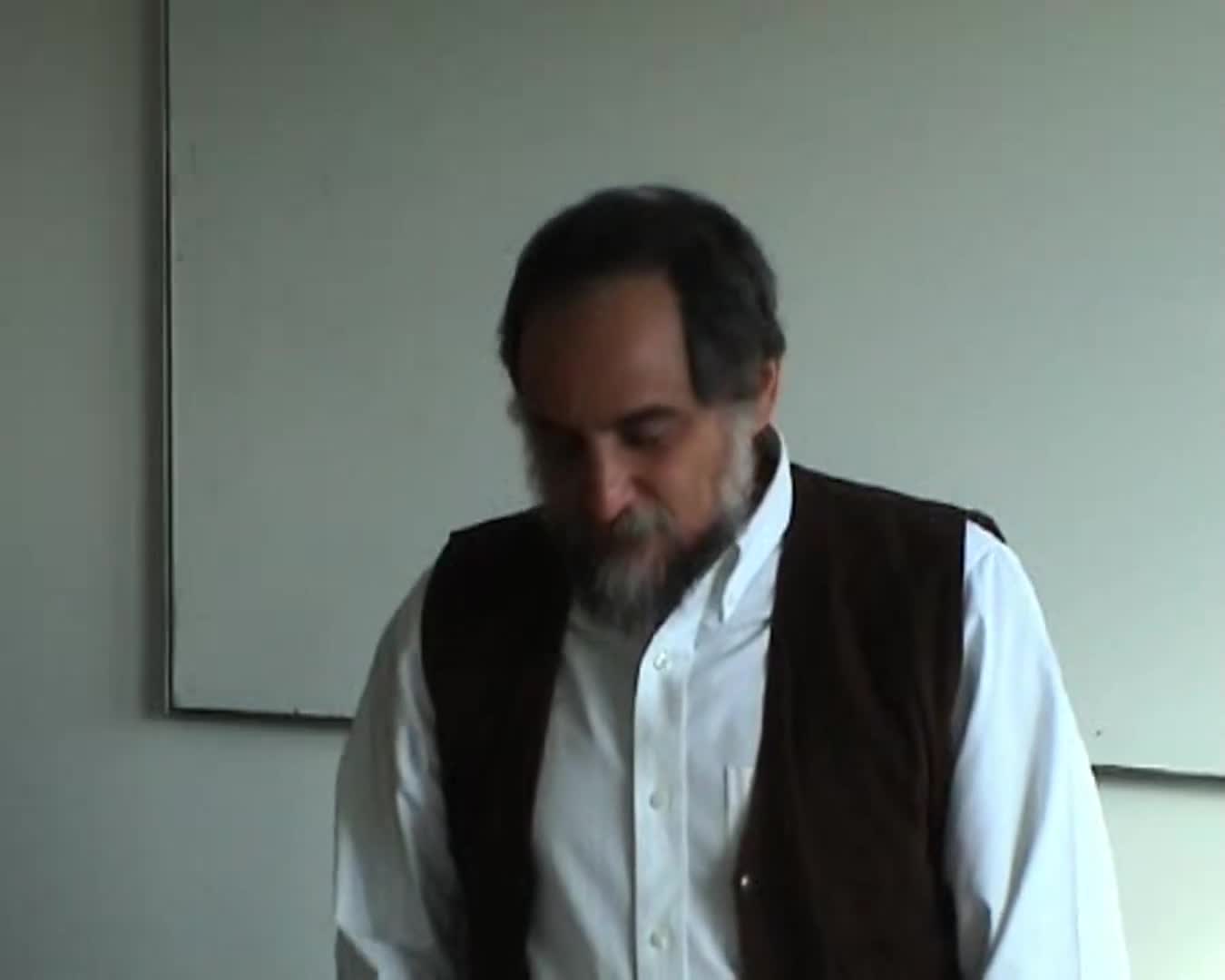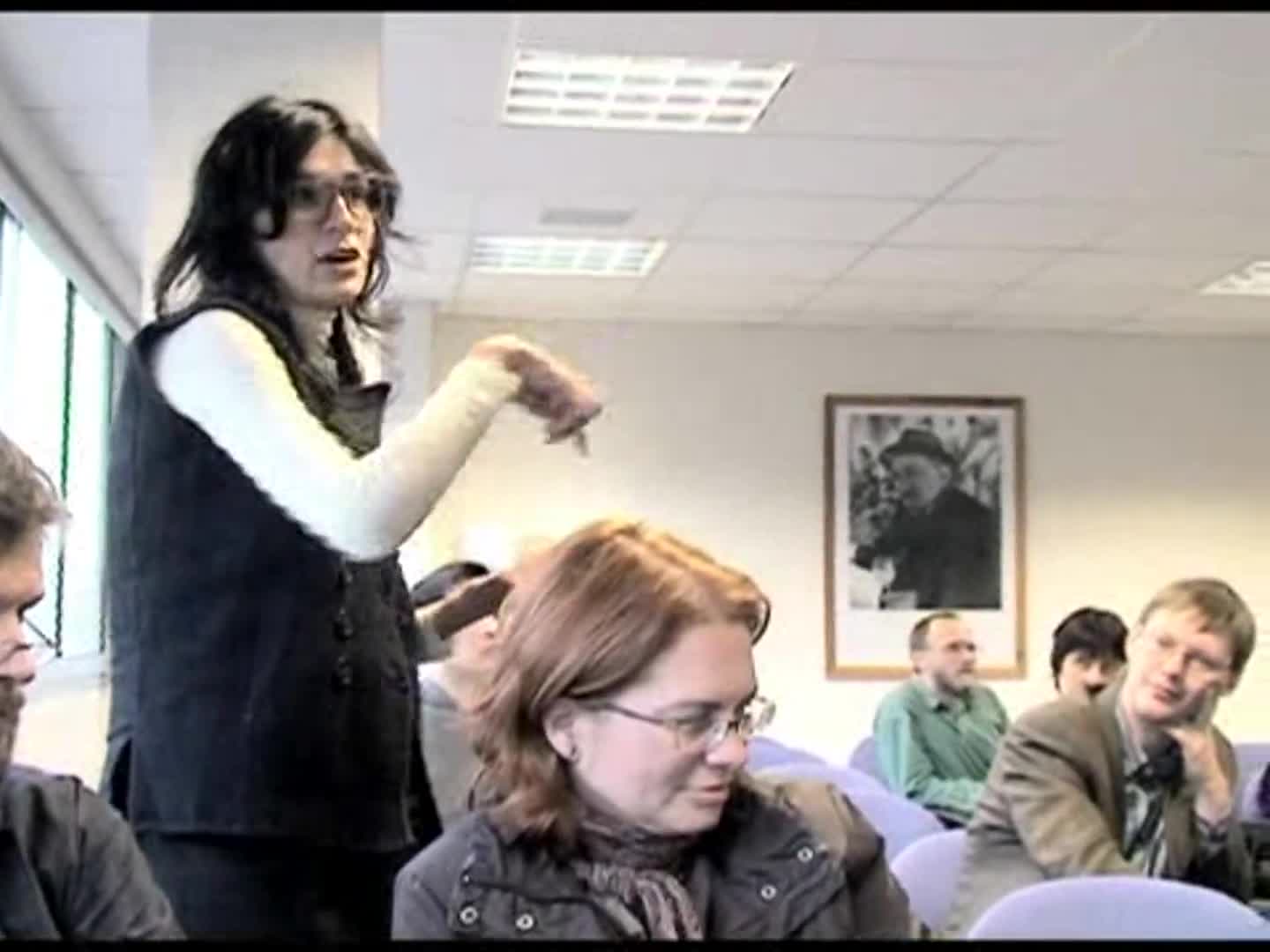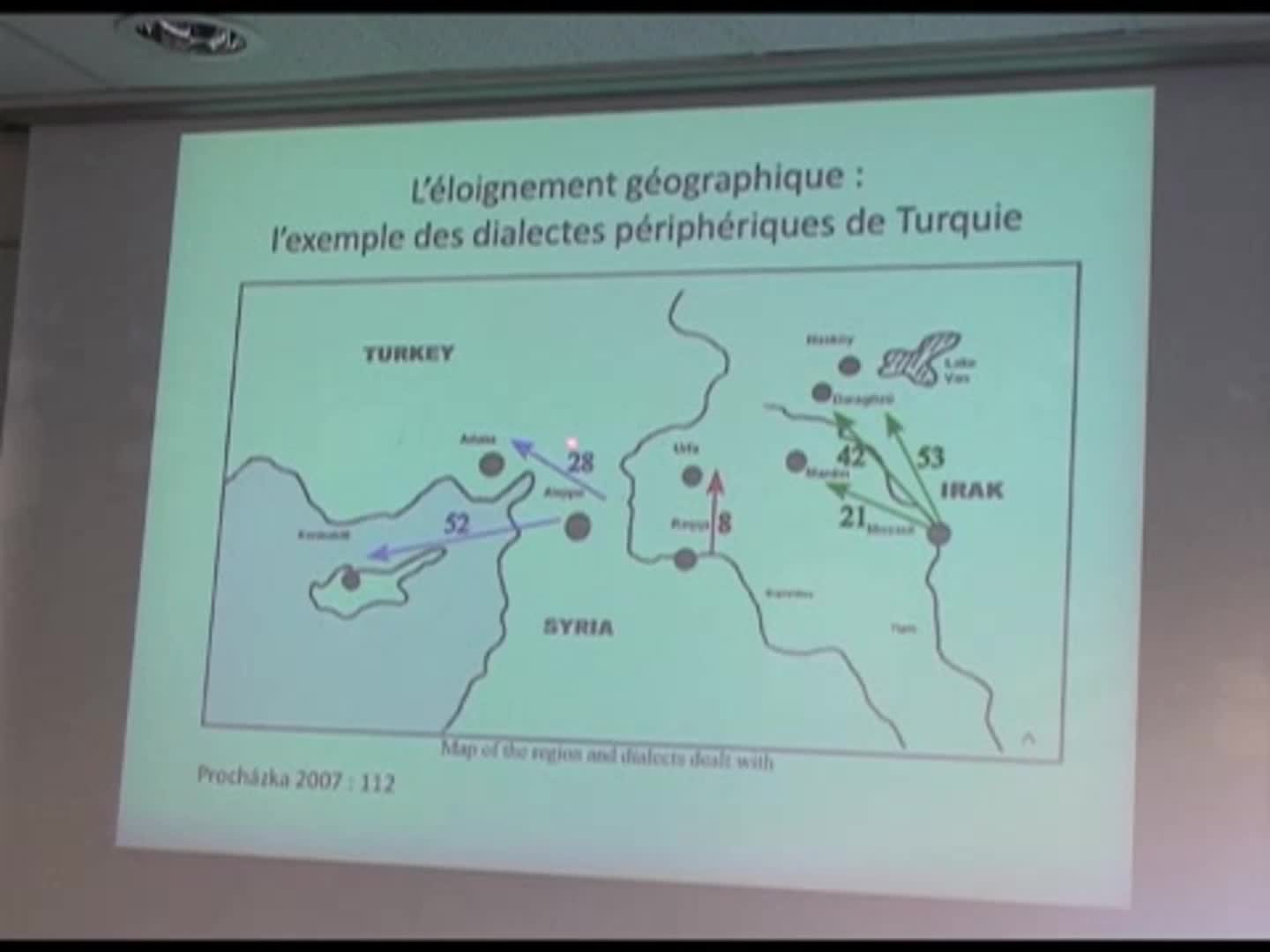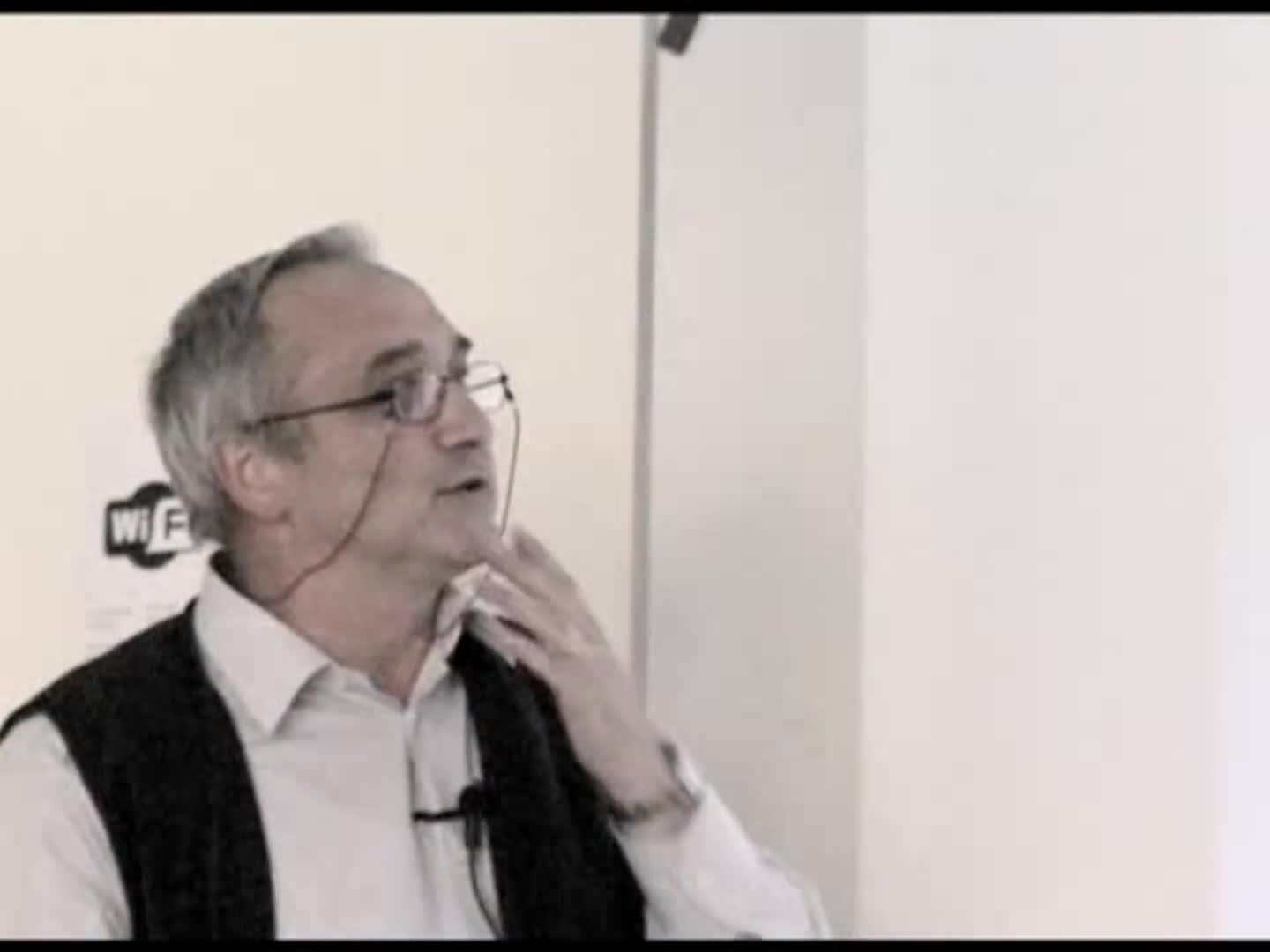Notice
Universal Anaphora and Dialogue Phenomena
- document 1 document 2 document 3
- niveau 1 niveau 2 niveau 3
Descriptif
The objective of the Universal Anaphora initiative is to facilitate progress in the empirical study of anaphora by covering not just identity anaphora, but all aspects of anaphoric interpretation from identity of sense anaphora to bridging to discourse deixis in all languages and covering not just written language, but spoken dialogue as well. In fact, the first shared task associated with the initiative, the CODI/CRAC 2021 Shared Task, will be focused on dialogue. However, many of the characteristics of current anaphoric annotation schemes have been developed for written text, and there is very little anaphorically annotated dialogue corpora besides our own annotations of the Pear Stories and Trains corpora as part of ARRAU, and the situated dialogue corpora Tell-me-more and Cups (Dobnik, Kelleher & Howes, 2020). In this talk we will describe work currently underway as part of the organisation of the CODI/CRAC shared task and work on the extension of the ARRAU guidelines for situated dialogue. We will discuss some of the limitations of current annotation schemes while annotating new dialogue data, including the AMI, Light, Persuasion and Switchboard corpora; and situated dialogue, including the Tell-me-more and Cups corpora.
Thème
Dans la même collection
-
Dialogue Context in Memory
Recent years have seen the emergence of theories that can be used to analyze a variety of phenomena characteristic of conversational interaction, including non-sentential utterances, manual
-
How Do Pre- and Post-Encoding Processes Affect Episodic Memory?
What post-encoding processes cause forgetting? For decades there had been controversy as to whether forgetting is caused by decay over time or by interference from irrelevant information, and a
-
A neural model of sensorimotor experience, and of the representation, storage and communication of …
Many cognitive scientists have advanced ‘embodied’ models of human language, in which language is connected in some way to the sensorimotor (SM) mechanisms that engage with the world. I’ll introduce a
-
How prosody helps infants and children to break into communication
GervainJuditThe talk will present four sets of studies with young infants and children to show who prosody helps them learn about different aspects of language, from learning basic word order through
-
Episodic memory and the importance of attribution processes to assess the retrieved memory contents
The Integrative Memory model describes the core mechanisms leading to recollection (i.e., to recall qualitative details about a past event) and familiarity (i.e., to identify some event as
-
The neuropragmatics of dialogue and discourse
In real life communication, language is usually used for more than the exchange of propositional content. Speakers and listeners want to get things done by their exchange of linguistic utterances.
-
Multimodality and Memory: Outlining Interface Topics in Multimodal Natural Language Processing
Multimodal dialogue, the use of speech and non-speech signals, is the basic form of interaction. As such, it is couched in the basic interaction mechanism of grounding and repair. This
-
Modelling Memory with Types: semantics and neural representation
I will argue that record types in TTR (a type theory with records) can be used to model mental states such as memory or belief. For example, a type modelling a belief or memory state is a type of
-
Language within the mosaic of social cognition
In spite of high genetic overlap and broadly similar neural organization between humans and non-human primates, humans surpass all other species in their abilities to solve novel problems, in the
Sur le même thème
-
Quand la BD reveille l'Antiquité
LonniMarieGallegoJulieDans ce neuvième épisode, Marie Lonni a pu échanger avec Julie Gallego.
-
Projet ORDI-GOAL
MagordAndréBellyMarlènePrésentation du projet ORDI-GOAL – Oralité Dynamique : Grand Ouest français, Acadie, Louisiane, lauréat de l’appel à projets CollEx-Persée 2022.
-
Quels ouvrages écrivent les locuteurs du croissant ?
PisuRafaëlloÉtudier les parlers locaux ne se limite pas à analyser les langues en tant que système linguistique. La sociolinguistique a pour postulat de base qu'on ne peut s'intéresser à une langue sans prendre
-
Le croissant dans l’atlas sonore des langues régionales de France
Boula de MareüilPhilippeDepuis quelques années, dans le laboratoire LISN du CNRS, on développe un atlas sonore des langues régionales de France qui prend la forme d'un site web présentant une carte interactive de France,
-
Soutenance de thèse : Robert GAVRILESCU
GavrilescuRobertGarciaBrigitteSallandreMarie-AnneNystVictoriaRathmannChristianBogdanGeluSoareElenaSoutenance de thèse : Robert GAVRILESCU Description linguistique de la Langue des Signes Roumaine. Analyse de la variation linguistique et sociolinguistique dans deux régions roumaines
-
Des langues au-delà de la parole : une réinterprétation des mains négatives du gravettien
EtxepareRicardoDes langues au-delà de la parole : une réinterprétation des mains négatives du gravettien
-
Conférence du professeur Frank Lichtenberk | Apparition et disparition des classificateurs possessi…
LichtenberkFrankConférence de Frank Lichtenberk (Université d'Auckland, Nouvelle-Zélande) | Apparition et disparition des classificateurs possessifs en austronésien / The rise and demise of possessive classifiers in
-
conférence du Professeur James A. Matisoff | Les initiales laryngales primaires et secondaires en T…
MatisoffJames A.Conférence du Professeur James A. Matisoff (Université de Californie, Berkeley) | Les initiales laryngales primaires et secondaires en Tibéto-birman | 06 mai 2009 | CNRS - Langues et Civilisations à
-
conférence du Professeur Brian Joseph | On the Need for History in Doing Balkan Linguistics
JosephBrian D.Conférence du Professeur Brian Joseph (Ohio State University) | On the Need for History in Doing Balkan Linguistics | 02 octobre 2008 | CNRS - Langues et Civilisations à Tradition Orale (LACITO)
-
ATELIER DÉSERTS. Y A-T-IL DES CORRÉLATIONS ENTRE L'ÉCOSYSTÈME ET LE CHANGEMENT LINGUISTIQUE ? | Ta…
NicolaïRobertJournée d'étude Déserts. Y a-t-il des corrélations entre l'écosystème et le changement linguistique ? | 19 octobre 2009 | CNRS - Langues et Civilisations à Tradition Orale (LACITO)
-
ATELIER DÉSERTS. Y A-T-IL DES CORRÉLATIONS ENTRE L'ÉCOSYSTÈME ET LE CHANGEMENT LINGUISTIQUE ? | De …
Taine-CheikhCatherineJournée d'étude Déserts. Y a-t-il des corrélations entre l'écosystème et le changement linguistique ? | 19 octobre 2009 | CNRS - Langues et Civilisations à Tradition Orale (LACITO)
-
ATELIER DÉSERTS. Y A-T-IL DES CORRÉLATIONS ENTRE L'ÉCOSYSTÈME ET LE CHANGEMENT LINGUISTIQUE ? | Aux…
ToscoMauroJournée d'étude Déserts. Y a-t-il des corrélations entre l'écosystème et le changement linguistique ? | 19 octobre 2009 | CNRS - Langues et Civilisations à Tradition Orale (LACITO)











